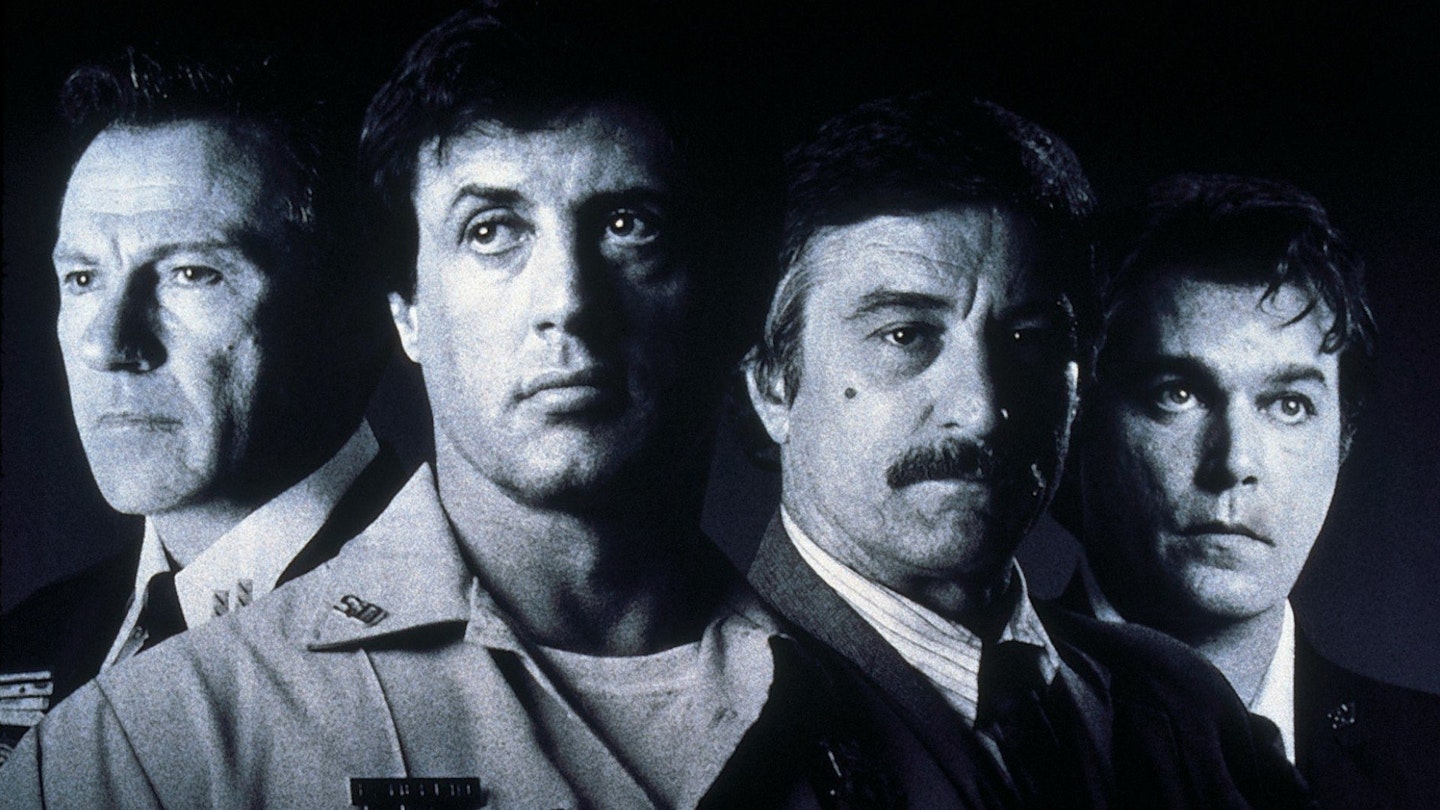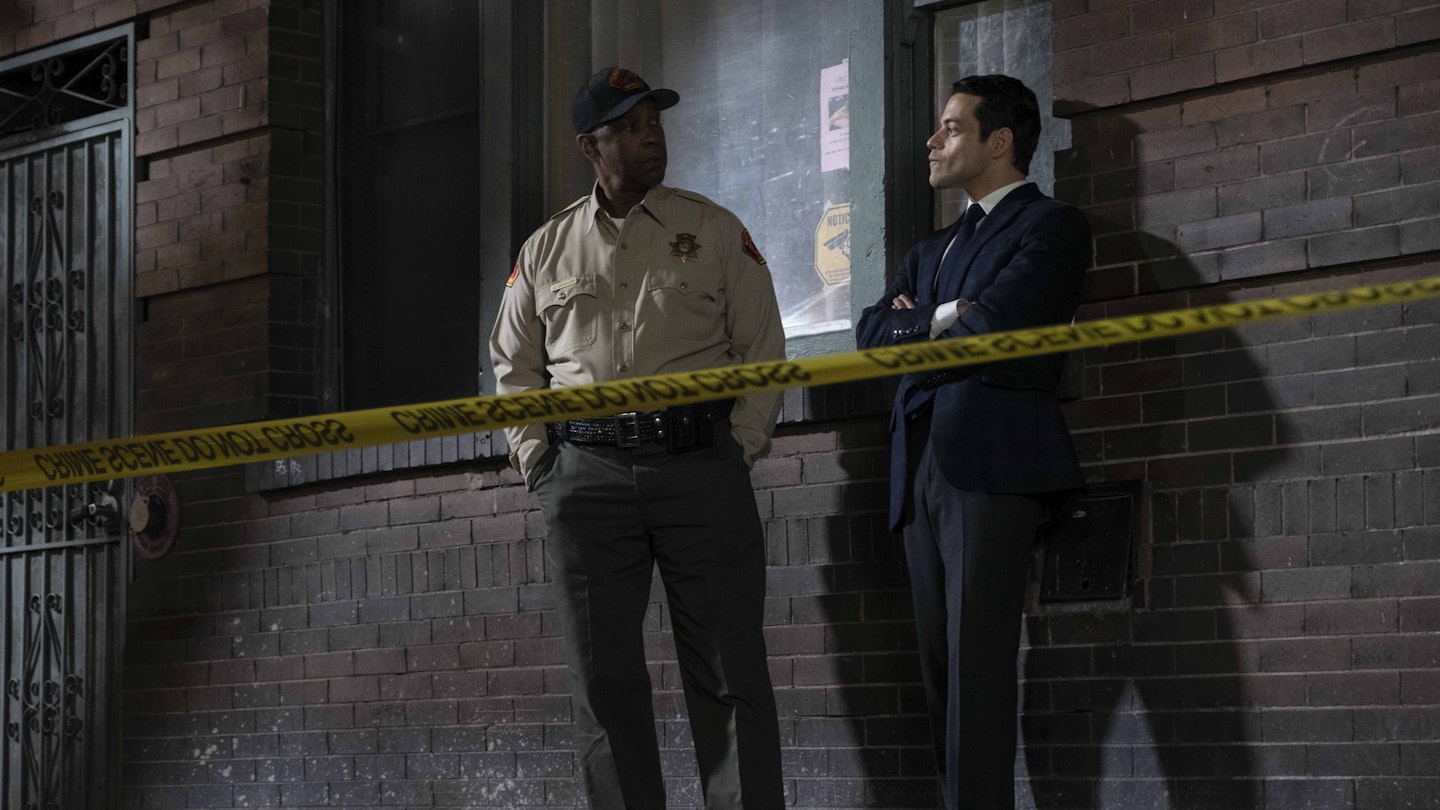Perhaps unfairly, Cop Land reaches Brit screens loaded with all the baggage of a long-touted movie. This is the film that represents the first demonstration of "real" acting from Sylvester Stallone after years of mumbling machismo and, of course, the film that enticed a troika of top thesping talents to take the minimum wage and a "supporting" role. The result is an honourable attempt to return the mainstream thriller to a more serious, intelligent vein, yet ultimately lacks the complexity of characterisation, dense subterfuge and overall feeling of weightiness that separates the great from the good.
The title refers to Garrison, New Jersey, a New York satellite town that is home to cops who service the Big Apple and is presided over by slow-witted, overweight, partially deaf Sheriff Freddy Heflin (Stallone). Heflin is an innocent officer totally unaware of the scandal that envelops the town - chiefly an inner circle of corrupt lawmen, lead by Ray Donlan (Keitel), who are using the town to hide Donlan's nephew and fellow cop Murray Babitch (Michael Rapaport), in the frame for killing two joyriders.
However, Heflin's senses begin to be shaken, firstly by Gary "Figs" Figgis (an excellent Liotta) an ex-member of Keitel's sanctum, then by the arrival of Internal Affairs agent Moe Tilden (De Niro) to investigate Babitch's disappearance. Soon the convoluted events spiral out of control - Figgis' house is burnt to the ground in an arson attack, Donlan attempts to bump off Babitch to cover his tracks - and Heflin is forced to choose between head in the sandom and taking a stand against those he has previously idolised.
It is not difficult to see why so many acting heavyweights took pay cuts to constitute the stellar cast: director James Mangold's screenplay has a stimulating set-up, characters that owe more than a nod to real people and is prepared with meaty, dramatic confrontations - an argument involving Liotta sticking a dart up his tormentors' nose is winceworthy in the extreme. Equally fascinating is the Smallsville milieu, the siege mentality of the cop ghetto being evoked with considerable realism.
Unsurprisingly, much of the pleasure is derived from the Clash Of The Acting Titans. Just watching these icons strutting their stuff in the same screen space - De Niro chewing scenery with a voracious appetite, Keitel's simmering intensity ready to blow at any moment - creates a filmic frisson par excellence. Appealingly placed between the two giants is Stallone's Heflin, his dumb lug demeanour providing an effective, sympathetic centre to the occasionally overwrought action. It is also incredibly enjoyable (and ironic) watching the wannabe serious thesp Stallone bowing and kow-towing to the method godheads of De Niro and Keitel.
Leaning heavily on the lone sheriff/dirty town motif and concluding with a pump-action bloodbath, Cop Land owes more to the simplicity of a Western than, say, Sidney Lumet's powerhouse police corruption dramas. There is just so much glossed-over backstory - Liotta's relationship with Keitel revolving around a murdered partner, Stallone's relationship with unattainable love Annabella Sciorra - that the broadstroke storytelling eventually becomes confusing and insubstantial. Which is a shame, as somewhere buried in Cop Land is a first rate policier.

